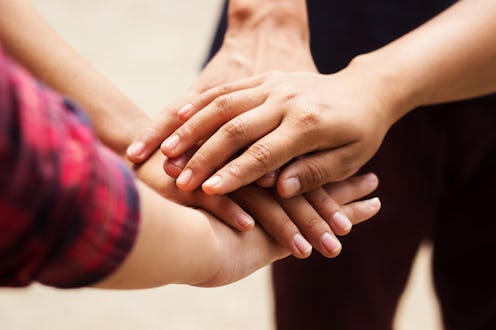
There’s no sugarcoating the fact that the world we live in has a massive amount of problems. We’re dealing with everything from unusual weather patterns caused by climate change to the ongoing threat of terrorism around the world, plus our own personal issues, so it’s no wonder that life is stressful, bewildering, and scary for a lot of us. Fortunately, we’re not powerless; there are plenty of ways to become a happier person.
In How to Be Alive: A Guide to the Kind Happiness That Helps the World , author and activist Colin Beavan leads readers on a “quest for a joyous and meaningful life while living in a frightening, confusing world that needs our help.” He argues that we have the ability to make choices and take steps that will improve not only our own lives, but those of the people around the world. Using questions, examples, and exercises to illustrate his philosophies, he makes improving the world seem much more manageable, no matter your situation. Part-pep talk, part-how-to, his book is a valuable read for anyone looking to better themselves and others.
Here are seven ways you can make yourself happier while making the world a little bit better, based on How to Be Alive:
1. Look For Small Solutions Toward Larger Problems
In a world with as many large-scale problems as ours, finding solutions can seem overwhelming and impossible. It’s easy to think that our small actions won’t make an impact, but Beavan asserts that they do, in fact, matter. Not only can they give you a sense of power and purpose, your actions can make life better for others.
2. Take Small Actions Regularly
Even the most environmentally conscious of us struggle to be eco-friendly all the time, but Beavan warns against sweating the inconsistencies. You don’t have to be perfect to make a difference and you don't have to do anything on an enormous scale. He cites research that shows that those who “consciously [make] small life choices in line with a desire to help the world” are more likely to be involved in activism and civic engagement. It seems that smaller changes naturally lead to bigger ones.
3. Consider Your Relationship To The World
Beavan believes that our lives are made up of tiny relationships that affect how we relate to the world. (For example, our relationships to food, with people, and to shelter.) When you examine each individually and see where there’s room for improvement, bettering your relationship to the world suddenly isn’t so daunting. “Choose just one of your relationships and fix it,” says Beavan about how to begin.
4. Strengthen Connections To And Among Others
Knowing a lot of people is different than being interconnected. Studies find that the latter makes people less likely to be depressed, so the more you can develop strong relationships with people and build connections among your friends and family, the better. It not only makes us as individuals feel better, interconnection improves a group’s collective health, sense of safety, and even economic prosperity.
5. Reevaluate Your Need For “Stuff”
We are living in a material world — just ask Madonna. However, for most of us, owning more stuff doesn’t usually make us happier. In fact, as Beavan points out, it’s not uncommon to get what we think we really want only to be disappointed by it. Worse still, we often don’t take into account the true cost of an item, whether that be to the environment or to laborers who manufactured it in a factory overseas. Beavan recommends reconsidering our attitudes toward spending and ownership, including trying to appreciate what we have more and opting for secondhand alternatives.
6. Ask How You Can Help
Beavan reminds us that improving the world is a process, and likely a never-ending one. In order to continue to have a positive impact, it’s important for us to always look for ways that we can help. Beavan recommends that we make a habit of continually asking ourselves what we can do — and then take action.
7. Reevaluate Your Definition of Success
As Beavean points out, there are “cookie-cutter goals and paths that we feel compelled to pursue regardless of whether they truly make us happy.” Common definitions of success are usually more focused on the impact on ourselves as individuals or our families than on a larger community. Beavan argues that “our own happiness depends on the world’s happiness and vice versa,” and therefore we find ourselves more fulfilled when we find a job or life path that allows us to improve both.